Departments, Specialised Units and Centres Highlights
UWI SOLUTIONS FOR DEVELOPING COUNTRIES
UWI SODECO is an international research charity of The University of the West Indies. UWI SODECO is comprised of two parts; Solutions for Medicine (SFM) which focuses on medical research and Solutions for Society which is oriented towards solving socioeconomic problems. UWI SODECO is international in its outlook, strategies and operations and leverages its global network to focus on research priorities in poor countries in order to inform better treatments for major health problems, as well as providing solutions to socioeconomic problems.
The objectives of UWI SODECO are aligned with the UN Sustainable Development Goals, especially 1, 3, 4, 10, 11, 13, 14, 15 and 17.
OUR GOALS
UWI SODECO aims to solve a major medical question: what are the molecular mechanisms underlying the greatly increased risk of cardio-metabolic disease and associated neurocognitive deficits affecting populations, poor for generations, who gain wealth and acquire lifestyles that promote obesity and its co-morbidities.
UWI SODECO engages the appropriate stakeholders to ensure its research findings are used to create interventions to prevent or treat these chronic conditions. Interventions are designed to improve clinical management of cardio-metabolic disease, reduce cardio-metabolic risk, mitigate neurocognitive deficits and inform the design of nutritional supplements, drugs or behavioural change to reduce damage from early life malnutrition.
UWI SODECO approaches selected problems in the socioeconomic domain and convenes appropriately skilled partners to solve societal problems whose solutions create improvements in society such as human capital and economic gain. In this socioeconomic space, UWI SODECO SFS currently places significant emphasis on rehabilitating, monitoring and maintaining mangroves in south Clarendon, Jamaica, and simultaneously on creation and enhancement of livelihoods.
OUR BOARD
- Professor Sir Hilary Beckles, Vice-Chancellor, The UWI
- Dr. The Hon. Marshall Hall, Chairman, Jamaica Producers Ltd.
- Dr. The Hon. Earl Jarrett, General Manager, JN Bank and Chairman of Campus Council, UWI Mona
- Dr. The Hon. Dennis Lalor, Chairman, ICWI Ltd.
- PVC Professor Densil Williams, Principal Five Islands Campus, The UWI
- PVC Stacy Richards-Kennedy, Office of Global Affairs, The UWI
- Dr. Maurice Smith, University Registrar
- Mrs. Andrea McNish, University Bursar
- Professor The Hon. Terrence Forrester, Chief Scientist and Managing Director, UWI SODECO
OUR TEAM
Core Academic Staff
- Terrence Forrester, Chief Scientist
- Angeli Williams, Wetlands Ecologist
- Nasheika Guyah, Marine Biologist
- Rahanna Juman, Marine Ecologist (Honorary)
- Cadell Green, Research Assistant
- Jamoy Blake, Research Assistant
- Shanice Jones, Research Assistant
UWI Collaborating Staff
- Michael Boyne, Department of Medicine
- Marilyn Lawrence-Wright, Department of Medicine
- Patrice Francis, Department of Medicine
- Althea Aquart, Department of Medicine
- Ingrid Tenannt, Department of Anaesthesiology
- Wayne McLaughlin, Basic Medical Sciences
International Collaborating Scientists
- Charles Nelson, Harvard University
- April Levin, Harvard University
- Justin O’Sullivan, University of Auckland
- Karen Lillycrop, University of Southampton
- Keith Godfrey, University of Southampton
- Mark Hanson, University of Southampton
- Mamane Zeilani, Nutriset Foundation
- James Levine, Mayo Clinic
- Amy Luke, Loyola University of Chicago
- Lara Dugas, Loyola University of Chicago
- Jack Gilbert, University of California, San Diego
- Ryan Kastner, University of California, San Diego
OUR RESEARCH PROGRAMME
Solutions for Medicine Grants
US$2.5m National Institutes of Health, 2018–2023
The overall PI for this project, Lara Dugas, is from Loyola University of Chicago with CO-PIs in Jamaica (UWI SODECO), Ghana, South Africa, and Seychelles. This project explores the role of gut bacteria (microbiome) in the increasing risk of obesity and co-morbidities such as diabetes and hypertension in populations of African origin.
US$1.0m National Institutes of Health 2020–2024
This project is shared among the same collaborators above to explore the role of sleep disturbance and meal timing on obesity and diabetes incidence.
Wellcome Leap US$1.0m 2020–2024
This project is shared among The UWI (UWI SODECO), origin of the overall PI (Terrence Forrester), and Harvard U, University of Southampton and the International Center for Diarrhoeal Research, Bangladesh. The project is designed to evaluate the impact of brain-targeted nutritional supplements on cognition and emotional regulation in children suffering severe acute malnutrition in Dhaka, Bangladesh who are rehabilitated using a specially designed feed.
Groupe Nutriset EU€0.9m 2022–2025
This project also has its origin at The UWI (UWI SODECO PI, Terrence Forrester) and is designed to evaluate the effect of exercise on cognition and emotional regulation of adult survivors of severe acute malnutrition in childhood in Jamaica. Collaborating institutions are, Advent Health, USA; The Liggins Institute, University of Auckland; Department of Pediatrics, Boston Children’s Hospital, HU; and University of Southampton.
All research projects in Solutions for Medicine are being implemented and are on time.
Solutions for Society Grants
US$2.5m Inter-American Development Bank 2020–2026. This project originated in The UWI (UWI SODECO, PI Terrence Forrester) and is designed to restore, monitor and maintain mangroves in south Clarendon where half the 3,500-hectare forest is dead or damaged.
GCRF UK consortium (Kenya, Scotland, Grenada and Jamaica) US$24,000 for Jamaica to co-create our funding proposal to assess and mitigate the impact of pollutants in the mangrove food chain from up-stream runoff of pesticides and other residues. 2020–2022
GCRF UK/Royal Society GBP₤24,000 2021–2024, to explore impact of extreme weather events and climate change of early life development and long-term health both cardio-metabolic and neurocognitive.
The mangrove restoration project has accomplished the first two major deliverables, namely completion of a data dense baseline survey and report which is now in hand. The second deliverable, using the baseline data which describe the current situation in the mangrove forest, and what accounted for the damage and death to half of it, to develop a restoration plan, is also complete. Next is the implementation of the restoration monitoring ongoing and maintenance beginning January 2023.

